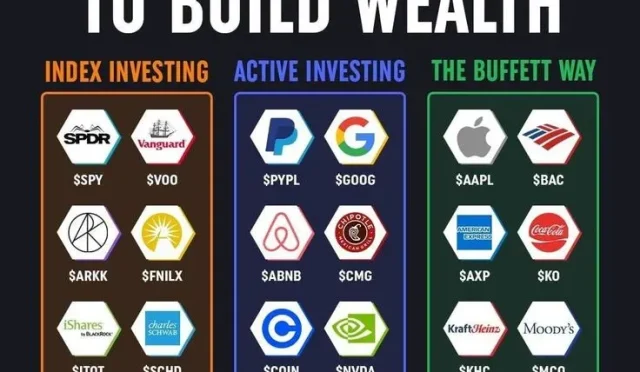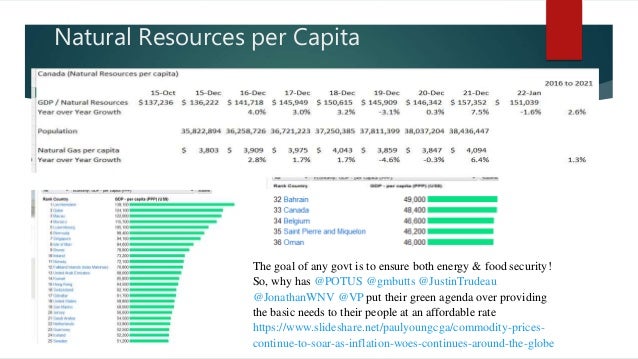China’s 100 Richest have seen their collective wealth soar to staggering heights, with total net worth reaching an impressive $1.35 trillion as reported in the 2025 Forbes China billionaires list. This increase of $320 billion from last year marks a significant boost for the wealthiest in China, driven by a thriving stock market and robust growth in sectors such as artificial intelligence and technology. Atop this elite list, Zhong Shanshan, with a net worth of $77.1 billion, continues to be a dominant force, showcasing the remarkable financial prowess of Chinese billionaires. The rankings reveal the dynamic landscape of wealth among China’s richest individuals, with notable gains for other entrepreneurs like ByteDance’s Zhang Yiming. As published in Forbes Asia’s November 2025 edition, the wealth distribution reflects ongoing economic shifts and entrepreneurial success across the nation.
The wealth landscape in China is largely shaped by its leading tycoons, who consistently dominate the upper echelons of global financial rankings. Recent evaluations reflect a booming economy where burgeoning sectors such as technology and AI drive fortunes forward, resulting in significant shifts within the Chinese billionaire rankings. The latest figures indicate that a considerable number of these affluent individuals have experienced remarkable growth in their respective net worths. With Zhong Shanshan firmly nestled at the pinnacle, various other magnates also showcase soaring fortunes, capitalizing on market trends and innovations. Such dramatic financial developments underscore the evolving narrative of wealth creation in one of the world’s most vibrant economies.
China’s 100 Richest: An Overview of Wealth Growth
The latest Forbes report showcases a phenomenal growth in the wealth of China’s 100 richest individuals, surging by a staggering $320 billion to reach a collective total of $1.35 trillion. This remarkable increase reflects the dynamic and ever-evolving economy of China, where the stock market’s performance has been particularly robust, fueled by advancements in technology and government stimulus measures. As per the Forbes China billionaires 2025 ranking, the rise of wealth among these individuals serves as a barometer of the health and potential of the Chinese economy.
This year’s list features notable advancements for several billionaires, particularly Zhong Shanshan of Nongfu Spring, who maintained his position as the wealthiest for the fifth consecutive year. The continuous growth in his net worth exemplifies how influential sectors like bottled water and beverages are thriving in China’s economic landscape. Furthermore, the impressive performance of sectors such as tech, as seen in the fortunes of figures like Zhang Yiming, underscores the transformative impact of technology on wealth generation in China.
Zhong Shanshan: The Rise of a Beverage Tycoon
Zhong Shanshan’s ascension to the top of China’s billionaire rankings reflects not just personal success but a broader trend within the beverage industry. His net worth surged by $26.3 billion in the past year, thanks in large part to the robust growth of Nongfu Spring in the face of fierce competition. The company’s remarkable performance has attributed to the soaring demand for bottled water, a sector that became increasingly popular amid health-conscious consumer trends in China.
Moreover, Zhong’s success highlights the potential within traditional industries that continue to evolve in a modern economic context. As the Chinese market grows and consumer preferences shift, there are opportunities for significant wealth creation—illustrated starkly by Zhong’s journey. His prominence on the Forbes list points to the underlying potential in the beverage category, suggesting that established players can still flourish amidst growing market demands.
The Impact of Technology on Wealth Creation
The integration of technology in China’s economy has drastically reshaped wealth accumulation, as evidenced by billionaires like Zhang Yiming, co-founder of ByteDance, who was propelled to a remarkable $69.3 billion net worth. The surge of companies involved in technology, especially during the recent AI boom, demonstrates how digital innovation has catalyzed financial growth for many entrepreneurs in China. Countries worldwide watch closely as Chinese tech firms navigate the complexities of global markets and regulations, particularly in the United States.
Zhang Yiming’s success trajectory illustrates a significant trend where technology-based firms have spearheaded wealth generation, evident in the growing influence of platforms like TikTok. This trend exemplifies that as digital solutions become central to consumers’ lives, the potential for substantial financial gain accelerates for those leading these technological advancements. The ongoing competition within the tech sector promises further opportunities for wealth enhancement among the country’s leading entrepreneurs.
Understanding the Forbes Asia November 2025 Ranking
The Forbes Asia November 2025 edition provides an insightful view into the dynamics of wealth among China’s elite. This year’s ranking not only highlights the names and fortunes of the 100 richest but also brings into focus the broader economic narrative that accompanies these figures. The list is crafted using comprehensive data collected from various reputable sources, including exchange rates and stock market performances right up to mid-October 2025.
The methodology employed in ranking these billionaires underscores the importance of both traditional industries and burgeoning tech companies. The criteria for the rankings, incorporating financial ratios and comparisons with publicly traded companies, allows for a detailed understanding of how each billionaire’s wealth was calculated. Such insights serve to demystify the financial strategies and market approaches adopted by these influential figures within the ever-evolving economic landscape of China.
The Fastest-Growing Billionaires in China’s Economic Landscape
The emergence of new billionaires and the dramatic growth in wealth among existing ones highlight the transformative nature of China’s economic environment. Figures such as Wang Ning of Pop Mart International, who saw his wealth increase fourfold, underscore classically entrepreneurial stories. His success amidst a global demand surge for collectable toys exemplifies how even niche markets can yield substantial financial rewards under optimal circumstances.
The landscape is equally interesting when considering newcomers like Liang Wenfeng, whose AI-driven innovations have captured the attention of investors and consumers alike. As new sectors like artificial intelligence take center stage, the profiles of the richest individuals in China reflect not just traditional wealth sources but also a vibrant mix of modern entrepreneurship and innovation. The ongoing expansion in these sectors suggests the potential for rapid wealth growth in the years to come.
Major Shifts in the Top 10 Richest of China
Analysis of the top 10 richest individuals on the Forbes China list reveals significant shifts in wealth distribution and rankings. Ma Huateng’s decline to No. 3 may reflect external challenges faced by Tencent, yet his wealth still grew impressively. These dynamics illustrate how traditional powerhouses in tech must navigate fierce competition not only from emerging firms but also from established competitors in related fields.
Such movements within the upper echelons of wealthy individuals exemplify the volatile nature of wealth accumulation in modern economies, where external factors such as trade relations and market demands can heavily influence fortunes. These shifts highlight how adaptable billionaires must be in response to changing market conditions and consumer preferences, reflecting the necessity of innovation and strategic pivots in maintaining wealth and status in China.
Navigating Challenges: The Decline of Wealth Among Billionaires
While many billionaires saw their fortunes climb, others faced significant challenges that resulted in a decline in wealth. Wang Xing’s drop in net worth illustrates how competitive pressures, like price wars in the food delivery sector, can erode previously stable fortunes. The case of the Meituan CEO shows that billionaires are not immune to market volatility; the interconnected nature of the business landscape often dictates fortunes.
This decline underscores the realities of financial management and adaptability in a fast-paced economy like China’s, where emerging threats can impact even well-established leaders. The experience of billionaires like Wang Jianlin, who faced liquidity issues, serves as a cautionary tale, reminding aspiring entrepreneurs and investors about the fragility of wealth amid changing economic landscapes.
Emerging Billionaires: The New Faces of Wealth in China
The 2025 Forbes list introduces a wave of new billionaires, representing a shift in the pillars of wealth in China. These individuals, such as Zhou Chaonan, symbolize the rapid development of sectors like AI and data intelligence. Their rise is indicative of a broader trend where innovative startups can achieve remarkable financial success, underscoring the evolving definition of wealth in a modern context.
As these newcomers break into the rankings, they refresh the narrative of who constitutes the wealthiest individuals in China, shifting focus away from traditional industries towards technology and innovation. This emergence of fresh billionaire profiles speaks to the potential for entrepreneurship in the current economic climate, with young innovators showing that new ideas can compete with decades-old companies, providing inspiration for future entrepreneurs.
The Evolving Definition of Wealth in China
The definition of wealth is continually evolving in China, especially as the dynamics of its economy shift. Factors such as globalization, technological advancements, and changing consumer behaviors are driving new avenues for wealth creation. This transformation is reflected in the variety of sectors represented in the top ranks of the Forbes list, where tech, e-commerce, and innovative industries take precedence.
Understanding this evolution is crucial for investors, entrepreneurs, and policymakers alike, as they navigate a complex landscape of opportunities and challenges. As China’s economy continues to adapt and grow, the profile and strategies of its richest individuals will likely shift accordingly, providing valuable lessons about resilience, innovation, and the future of commerce.
Frequently Asked Questions
What is the net worth of Zhong Shanshan on Forbes’ 2025 list of China’s 100 Richest?
Zhong Shanshan, the founder of Nongfu Spring, has a net worth of $77.1 billion, making him the richest individual on the 2025 Forbes list of China’s 100 Richest. This marks his fifth consecutive year at the top.
How much did the collective wealth of China’s 100 Richest increase in 2025?
In 2025, the collective net worth of the tycoons on Forbes’ list of China’s 100 Richest rose by $320 billion, reaching a total of $1.35 trillion.
Who are the top three richest individuals in China according to the Forbes Asia November 2025 report?
According to the Forbes Asia November 2025 report, the top three richest individuals in China are Zhong Shanshan ($77.1 billion), Zhang Yiming ($69.3 billion), and Ma Huateng ($62.8 billion).
What factors contributed to the rise in wealth among China’s richest individuals in 2025?
The increase in wealth among China’s richest individuals in 2025 was largely driven by a booming stock market, fueled by advances in AI technology and expected government stimulus measures.
Which Chinese billionaire saw the largest dollar increase in wealth on the 2025 Forbes list?
Zhong Shanshan experienced the largest dollar increase in wealth on the 2025 Forbes list, gaining $26.3 billion in 2025.
What is the minimum net worth required to be included in the 2025 Forbes China richest individuals list?
The minimum net worth required to make the 2025 Forbes list of China’s 100 Richest rose to $4.6 billion, up from $3.9 billion in the previous year.
Which new entrants joined the 2025 Forbes list of China’s 100 Richest?
The 2025 Forbes list of China’s 100 Richest includes eight newcomers, such as Liang Wenfeng, founder of DeepSeek, and Zhou Chaonan, founder of Range Intelligent Computing Technology Group.
What was the performance of Tencent Holdings chairman Ma Huateng in the 2025 billionaire rankings?
Ma Huateng, chairman of Tencent Holdings, ranked No. 3 on the 2025 Forbes China billionaires list, with a net worth of $62.8 billion, despite slipping one position from the previous year.
How did Zhong Shanshan’s fortune perform during the 2025 assessment compared to prior years?
Zhong Shanshan’s fortune increased significantly by $26.3 billion in 2025, reinforcing his position as the wealthiest individual in China for five consecutive years.
What impact did the AI boom have on the wealth of individuals in the 2025 Forbes China richest list?
The AI boom played a significant role in increasing the wealth of several individuals in the 2025 Forbes China richest list, with major investments in AI technology leading to substantial financial gains for tech moguls like Zhang Yiming and Robin Zeng.
| Rank | Name | Net Worth (USD Billion) | Notable Info |
|---|---|---|---|
| 1 | Zhong Shanshan | 77.1 | Founder of Nongfu Spring, largest dollar gainer, +$26.3 billion. |
| 2 | Zhang Yiming | 69.3 | Co-founder of ByteDance, gained +$23.7 billion, TikTok’s success. |
| 3 | Ma Huateng | 62.8 | Chairman of Tencent, wealth up +40%. |
| 4 | Robin Zeng | 53.5 | Founder of CATL, +$16.4 billion. |
| 5 | William Ding | 47.5 | Founder of NetEase, significant wealth growth. |
| 6 | Colin Huang | 45.3 | Known for his extensive holdings in tech. |
| 7 | Lei Jun | 36.8 | Founder of Xiaomi, strong market presence. |
| 8 | Jack Ma | 31.0 | Founder of Alibaba, notable impacts on eCommerce. |
| 9 | He Xiangjian | 29.8 | Co-founder of Midea Group, household appliances. |
| 10 | Zheng Shuliang | 25.4 | Leader in the industry with growing assets. |
Summary
China’s 100 Richest have seen a remarkable increase in their collective wealth, reaching a staggering $1.35 trillion for 2025. This surge is driven by the booming stock market and the resilience of tech industry leaders amid global economic challenges. Key figures like Zhong Shanshan and Zhang Yiming highlight the dynamic nature of wealth accumulation in China, showcasing the country’s capacity to generate billionaires in various sectors, especially AI and e-commerce. The ongoing trend indicates a robust economic landscape, despite challenges, signifying the importance of keeping track of China’s evolving financial elite.








